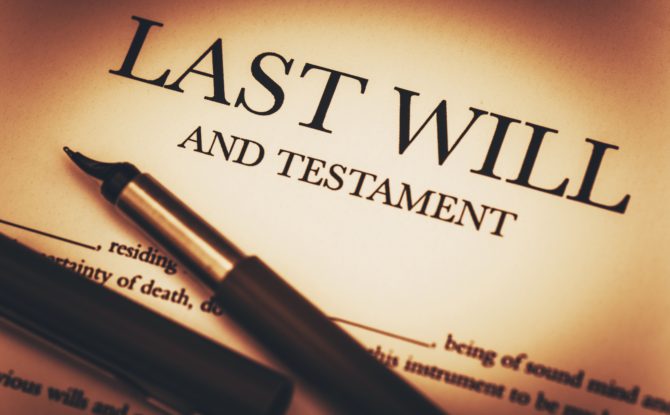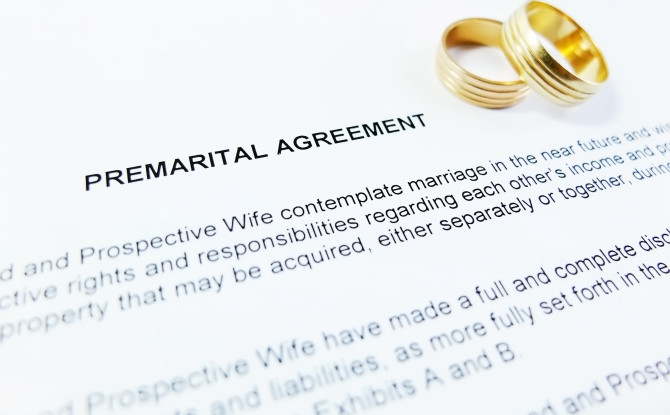New York Trial Court Holds New York Property Acquired During a Vermont Civil Union is Not Subject to Equitable Distribution in New York Dissolution Proceeding
In a rather complicated opinion, New York Supreme Court Justice Richard A. Dollinger ruled on October 23 that New York property acquired by Deborah O’Reilly-Morshead during her Vermont Civil Union with Christine O’Reilly-Morshead is not subject to equitable distribution under New York law in the current divorce proceeding between the women, who married in Canada after the property was acquired. O’Reilly-Morshead v. O’Reilly-Morshead, 2015 N.Y. Misc. LEXIS 3843, 2015 NY Slip Op 25354 (Supreme Ct., Monroe County).
Deborah and Christine began their relationship in 2001 while living in Indiana, where they had a “union ceremony” with no legal significance. They moved to New York in 2002, Deborah selling a house she owned in Indiana. They went to Vermont in 2003 and contracted a civil union, while continuing to reside in New York. In 2004 Deborah used the proceeds from the sale of her Indiana house and her other resources to buy a house in Rochester, New York, which was recorded in her name only. In 2006, the women ventured up to Canada to marry, continuing to maintain their residence in Rochester. Five years later, Deborah filed a divorce action in Monroe County Supreme Court, seeking equitable distribution of “marital property.” She excluded from that category the house, which she had purchased with her own assets prior to the marriage. Christine counter sued for divorce and dissolution of the Vermont Civil Union (calling on the equitable powers of the court for the latter), and contended that the house, purchased %after% the parties contracted their civil union, should be considered property of the civil union subject to distribution under Vermont law, and so should be included as part of the marital property subject to dissolution in the New York proceeding. As the parties could not resolve their dispute about the status of the house, it fell to the court to decide both whether it had the power to dissolve the civil union and also whether it had the authority or power to make an order regarding ownership rights to the house.
Relying on prior court decisions finding that New York Supreme Court justices can dissolve civil unions drawing upon their general equitable powers, Judge Dollinger had no trouble deciding that he could grant Christine’s request to dissolve the civil union, but dealing with the house was a more complicated matter.
The court’s authority to distribute property in a divorce proceeding is not based on general equitable principles, but rather on the equitable distribution provisions of New York’s Domestic Relations Law, a statute passed by the Legislature that provides that “marital property,” defined as property acquired during the marriage of the parties, is subject to distribution between the parties upon divorce. Clearly, this house was not acquired “during the marriage.” While it was clear to the court that if Christine brought an action to dissolve the civil union in Vermont, a Vermont court could treat the house as “property of the civil union” and thus subject to distribution between the civil union partners under Vermont law, it was not clear that a New York court would have that authority, and a review by Justice Dollinger of New York case law provided, in his view, little support for Christine’s argument.
He wrote, “This court considers ‘marital property’ as defined by the Legislature in the Domestic Relations Law as the linch pin on which New York’s entire system of marital property distribution rests. If the property is ‘marital,’ the court can equitably distribute it. If not, the court has no jurisdiction to change title or ownership to it. Because of the central importance of creating an exact context in which courts could order a transfer to title to property, the Legislature adopted a black line test for determining when ‘distributable property’ existed in a marriage. The date of marriage – and no other date – is the time when ‘marital property’ exists,” citing Dom. Rel. L. sec. 236(B)(1)(c). While the courts have adopted a broad definition of “property” for purposes of enforcing this statute, Dollinger wrote, they had not adopted a broad definition of “marital,” adhering strictly to the statutory definition. On top of this, of course, when adopting its Civil Union Act in 2000, the Vermont legislature included a provision expressly declaring that a civil union is not a marriage, and Dollinger saw no basis for arguing that a New York court should or could treat a Vermont civil union as a marriage.
He also rejected the notion that the court could apply the doctrine of “comity” in order to treat the property the way it would be treated under Vermont law, pointing out the difficulties that would ensue in dealing with property claims based on a civil unions and domestic partnerships from the various jurisdictions where those statuses were created during the period between 2000 and the Supreme Court’s marriage equality decision on June 26, 2015. This would require New York courts to inquire into the nature of legal relationships in other jurisdictions and how they treated property distributions upon dissolution.
While he noted that some other states had dealt with this problem through express statutory provisions when adopting their marriage equality laws – notably Vermont and New Hampshire – and that the Massachusetts Supreme Judicial Court had accorded marital-like status to Vermont civil unions for some purposes, he observed, “Neither the New York Legislature nor the Court of Appeals has yet moved New York’s law into the same orbit as our neighboring sister states. The Legislature, in the Marriage Equality Act, simply made same-sex marriage legal in New York. It did not mandate that same-sex couples, who were united in civil unions in other state, acquired property rights through that civil union that are equal to the property rights granted to married couples.” By contrast, Vermont’s marriage equality law says that civil unions from other states would be treated as equivalent to marriages in Vermont. If the New York legislature were to amend the NY Marriage Equality law to add similar language, this problem would disappear.
For those tracking the development of these issues in New York, Justice Dollinger’s opinion provides a useful summary of the court opinions that have had to grapple with how civil unions elsewhere should be treated by New York courts. Unfortunately, none of them provides direct guidance about how to decide this case. Most of them deal with disputes involving custody, visitation and child support.
The judge also considered an alternative theory of treating the Vermont civil union as equivalent to a contract under which the parties agreed that property acquired during their civil union would be deemed jointly-owned property. There is precedent under New York law for the enforcement of express pre-nuptial agreements, for example, that would control the distribution of property, and the Court of Appeals has extended that concept to express agreements by non-marital cohabiting couples about their property rights, but has refused to enforce “implied” agreements based on cohabitation. While acknowledging that Christine’s argument along these lines “has a power logic,” Dollinger concluded that it went beyond what he was authorized to do under current law. “In this court’s view,” he wrote, “the proof problems and other complications that drove the Court of Appeals to deny recognition of an implied agreement for asset distribution between an unmarried couple are not present, in the same degree, in a civil union.” The Court of Appeals was worried about the problem of “amorphous” agreements that would not provide the kind of “black line” test that the term “marital property” provides. Dollinger acknowledged that this problem might not pertain to civil unions, which had well-defined contours in statutes such as Vermont’s Civil Union Act. “However,” he wrote, “whether this court should, in interpreting the Court of Appeals use of the word ‘amorphous’ in these opinions, conclude that the common use of this word was a springboard to change the definition of ‘marital property’ to include property – acquired during a statutory well-defined union in another state, but not acquired during a marriage – is, in view of this court’s limited authority, unwise. This interpretative reed – based on the use of the same word by justices more than two decades apart – is too tender to carry such weight.”
Ultimately, Dollinger concluded that the failure of the New York legislature to pass any statute recognizing out-of-state civil unions for any purpose effectively tied his hands. “There is no general common law of equity that is equivalent to the statutory creation of an equitable distribution power in the Domestic Relations Law,” he wrote, pointing out that the Court of Appeals has frequently ruled that a “marriage – of whatever type or from whatever jurisdiction – is the only touchstone for equitable distribution of property in New York.”
“In reaching this conclusion, the court is struck by the anomaly this case represents: this court is dissolving a pre-existing civil union, but only allowing equitable property distribution based on the couple’s marriage. Any ‘civil union’ property – which would be subject to distribution if this matter were venued in Vermont – remains titled in the name of the current title holder and is not subject to distribution,” he wrote. “In short, this court provides one remedy to the couple – dissolving the civil union – but declines to provide any further remedies based on their civil union. This court has no solution for this conundrum without violating longstanding principles of New York marriage-based laws. Any further answer rests with the Legislature.”
Click here to read the entire article.
October 30, 2015 - by Art Leonard, artleonardobservations.com

 I count my blessings every day that my son Nicholas, a six and a half year old with the soul of my departed father, is growing up in New York City, where every language is spoken and where every culture is practiced. I am grateful that my daughters have parents who love them and who share with them the possibilities of life that their parents shared with them. The truth about gay family values is that there is no such thing. Family values are born from love and respect, not only between family members, but among the different families that exist all over the world. Those values are exclusive to no particular group.
I count my blessings every day that my son Nicholas, a six and a half year old with the soul of my departed father, is growing up in New York City, where every language is spoken and where every culture is practiced. I am grateful that my daughters have parents who love them and who share with them the possibilities of life that their parents shared with them. The truth about gay family values is that there is no such thing. Family values are born from love and respect, not only between family members, but among the different families that exist all over the world. Those values are exclusive to no particular group.














